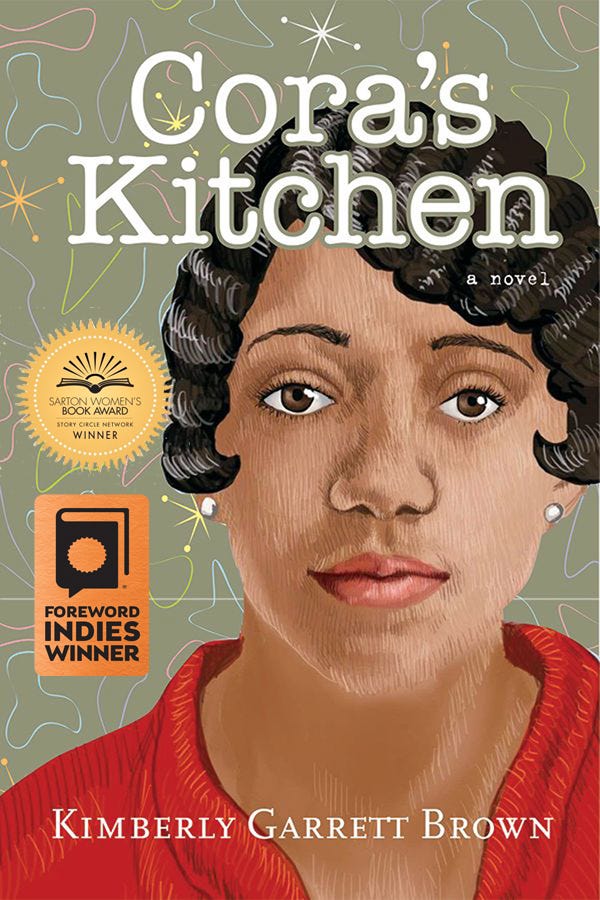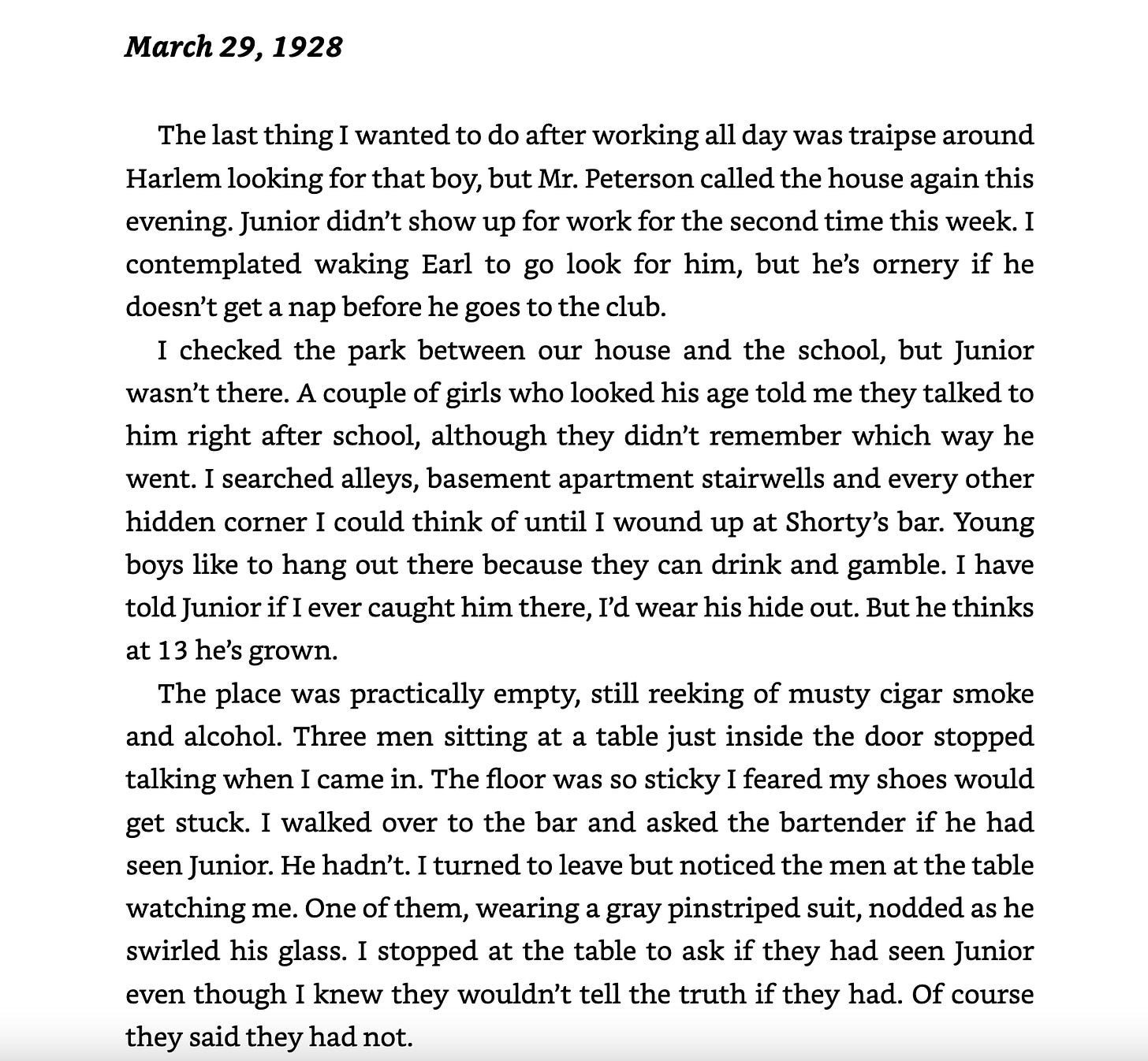A Visit to Cora's Kitchen: A Conversation with Novelist Kimberly Garrett Brown
"I want readers to understand the complexity of women’s lives regardless of ethnicity or income."
Today, February 25 at 2 PM PT, I’m hosting a one-hour Zoom for monthly and annual subscribers on agent query letters, submitting to journals, book contests, and indie publishers. I’ll also answer submission questions and share the reading list I use for the graduate publishing industry course I teach. (Drop me a note or post a comment if you’d like to attend. Bookish subscriptions are currently 20% off.)
This week we get an extra 24 hours of winter courtesy of Leap Day, February 29! 😳
You might consider spending some of these extra hours reading Kimberly Garrett Brown’s debut novel Cora’s Kitchen, which Kirkus Reviews described as “powerful…an affecting novel of female friendship.”
Today’s feature is a guest post that Kimberly wrote for Bookish about the experience of writing Cora’s Kitchen, which won the 2022 Story Circle Network Sarton Women’s Book Award for Historical Fiction and the 2022 Bronze Foreword INDIES Book of the Year Award for multicultural fiction.
Along with being a novelist, Kimberly is publisher and executive editor of Minerva Rising Press, a literary press dedicated to publishing women writers.
Kimberly Garrett Brown: What led to your writing about a Black librarian during the Harlem Renaissance?
KGB2: I have always been drawn to the entire vibe of the 1920s, particularly the Harlem Renaissance. I love the creativity and innovation that came out of the Black community. It wasn’t my original plan to write about a librarian. I was interested in writing about a friendship between a Black woman and a white woman that defied the convention of the era. Cora started out as a domestic worker, but that quickly changed when I discovered she also dreamed of being a writer. It made sense to have her work at the 135th Street library so that she would have the opportunity to interact with writers. It also allowed for books to be a significant part of her life.

KGB: Was it hard to twine themes of feminism and racial justice in one novel?
KGB2: As a Black woman, separating the two themes is often much more challenging. Racial inequality generally exists alongside sexism and classism. As Dr. Martin Luther King Jr stated: “Injustice anywhere is a threat to justice everywhere. We are caught in an inescapable network of mutuality.”
KGB: What inspired you to include Langston Hughes in your novel?
KGB2: I love Langston Hughes’s poems “Mother to Son” and “Troubled Woman.” They moved me to my very soul. His words portray the hardships and beauty of life as a Black person in America, and they are as relevant today as they were 100 years ago. I thought having him be a part of Cora’s development as a writer would be fun.

KGB: Did your experience as an editor help you as a writer?
KGB2: My experience as an editor sometimes makes writing more difficult. I am constantly thinking about the finished product rather than letting the process of writing flow. However, during the revision process, being an editor has given me a keen eye for what works and what doesn’t work. It also helped me to appreciate the importance of having the editor’s fresh eyes to elevate the piece.
KGB: What do you hope readers take away from Cora’s story?
KGB2: I want readers to understand the complexity of women’s lives regardless of ethnicity or income. I also hope to inspire an interest in the wonderful writers of the Harlem Renaissance.
The opening paragraphs of Cora’s Kitchen:





Thanks for yet another great reading tip! (And interview, too.)